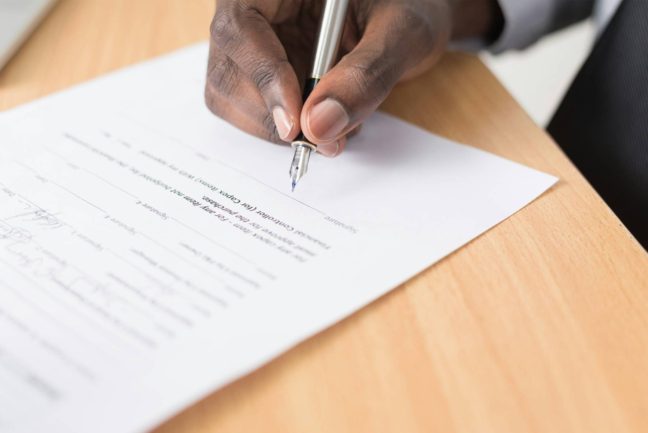Discovery in divorce can be an invasive undertaking, but with advice and guidance from the best divorce lawyers in Virginia Beach, it can be avoided.
The best way to evade discovery in divorce is to draft a settlement agreement with a spouse outside of court, either through mediation or by filing an uncontested divorce, collaborative divorce, or default divorce. If a divorce case reaches trial and requires discovery, a party can also limit discovery requests through protective orders.

What Is Discovery in Divorce?
Discovery in divorce is an investigation into the assets, incomes, expenses, and liabilities of each spouse. It’s done to get full financial disclosure from all parties to be able to divide properties fairly and determine matters such as alimony and child support.
Discovery is an essential process that usually happens after a divorce petition is filed. From there, either spouse can request the other party to produce specific documents, provide recorded statements, submit a deposition, or answer written questions. The requested party must respond in thirty days; if they refuse, the requesting party may file a motion to compel the court to order cooperation.
During discovery, lawyers examine the following information:
- Financial accounts
- Retirement accounts
- Real estate
- Income
- Assets
- Trust funds
- Personal possessions, including vehicles, jewelry, artwork, collectibles, electronics, and other valuable items
- Life insurance and health insurance policies
Attorneys may also examine the personal circumstances of each spouse, such as their education and work history.
How to Avoid Discovery in Divorce
Discovery is a routine part of divorce that happens leading up to a trial. It’s inescapable once a petition is filed, but it can be avoided before a divorce is taken to court. It can also be limited if discovery requests become too invasive.
Here are some ways one can avoid discovery in divorce:
Consider Mediation
In some divorce cases, mediation can help couples reach an agreement without having to take matters to a judge. Mediated divorces require a pair to reach a solution amicably without having to go through a formal discovery process. Choosing between a divorce mediator and a lawyer is a good first step for divorcing partners when settling their separation.
Seek a Default Divorce
Couples who have been separated for some time and who have kept their properties and finances separate may be eligible for a default divorce. In this situation, one spouse only needs to file a divorce petition while the other responds stating they don’t contest the divorce, avoiding discovery and litigation.
File for an Uncontested Divorce
Like a default divorce, an uncontested divorce involves both parties agreeing with the terms of their separation, as outlined by a separation agreement concerning the division of assets, support, and custody. This is sent to a judge who may approve it immediately, avoiding any court proceedings.
Opt for Collaborative Divorce
In a collaborative divorce, both spouses work with their attorneys to come to a settlement that’s advantageous for either party. In this case, however, it’s important to practice full and transparent disclosure. Doing so from the onset lessens the necessity of going further into discovery.
Negotiate a Settlement
If a case already goes into discovery, the couple may go for settlement negotiation to reduce the necessity of exchanging details and digging up information. Negotiating a settlement can also lead to a faster resolution of the divorce, saving the pair time and having to pay more towards a divorce lawyer payment plan.
Ask for Protective Orders
If discovery becomes invasive at any point in a case, one party, through their attorney, may ask the court to limit discovery requests. This may be useful if someone wants to keep information irrelevant to the case (e.g. health records) private.
Legal Consequences of Refusing Discovery
While it may be beneficial to avoid discovery in divorce, there may be ramifications to doing so, particularly when the process is started formally. Some legal consequences of refusing discovery include:
- Receiving a motion to compel
- Being charged with contempt of court
- Being assumed to hide unfavorable facts (adverse inference)
- Losing claims to assets and debts
- Getting a case dismissed
- Being charged with criminal behavior
- Receiving a default judgment
Get Legal Help on Divorce
Knowing the best options to protect yourself during a divorce requires seeking guidance from a skilled divorce attorney, such as the divorce lawyers from Coastal Virginia Law. Contact us today to learn more about divorce proceedings and how to navigate related processes!



